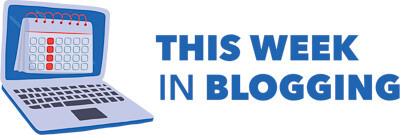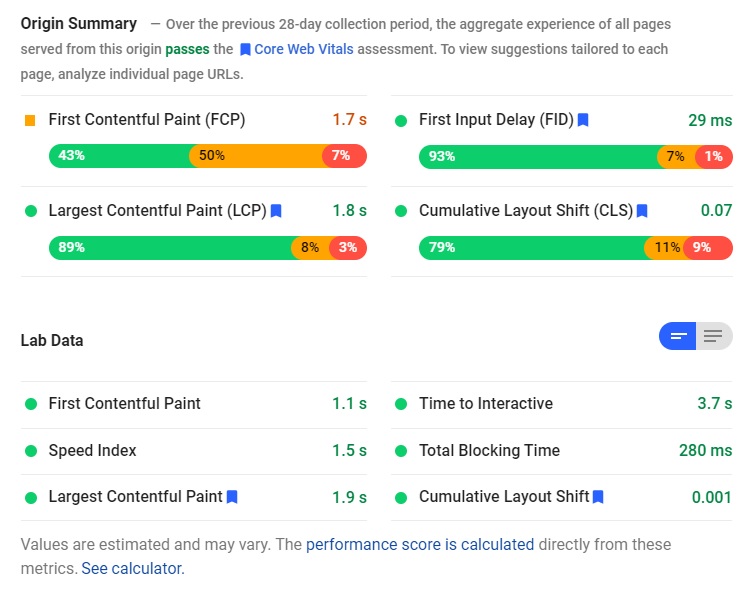Published by Chris. Last Updated on February 20, 2023.
Disclaimer: This Week in Blogging uses demographic data, email opt-ins, and affiliate links to operate this site. Please review our Terms and Conditions and Privacy Policy.
Sometimes we forget that it wasn't all that long ago that “blogs” and “bloggers” were simply not a thing. The “history of blogging” in the grand scheme of things, is a rather short history.
If in elementary school you told the class “I shall be a blogger!” – your declaration would be met with some seriously confused looks.
Often times at This Week in Blogging, we cover the timely topics. We'll write about the rise of Clubhouse, or perhaps cover Google Stories. But today, we're moving away from the timely, and focusing on the timeless. Today, we're covering the history of blogging.
It was the late great Terry Pratchett who said, “If you don't know where you come from, then you don't know where you are… and if you don't know where you are, then you don't know where you're going.”
So let's go back to where it all started.
The Early Days of Blogging
The very first blog was created in 1994 by a college student named Justin Hall. He created links.net, which is actually still running today.
Others started to follow Justin's example and creating sites to share their personal thoughts and ideas. In 1997, Jorn Barger, who ran the early site “Robot Wisdom,” used the term “weblog,” to describe these kinds of sites.
In 1998, things get a little formalized when Open Diary is launched. It was described as “the online diary for the world,” and it is considered the world's first blogging platform.
Finally, in 1999, a programmer named Peter Merholz decided that “weblog” just wasn't all that catchy, and he shortened it to simply “blog.” The rest, as they say, is history.
From Little Known to Full Blown
Shortly after Open Diary is launched, LiveJournal and Blogger follow suit.
The rise of Blogger and its acquisition by Google had enormous implications. Blogger changed the game by making it easy to create permanent and shareable links that were unique to each post.
2002 is often thought of as the year where blogging really came into its own, or at least when the actual power of having a blog was fully realized.
The first person was fired for blogging about their colleagues, the first mommy blog was born, and the first form of blog advertising was created by a company called “Blogads.” Fun fact, the first woman who was fired was a woman by the name of Heather Armstrong. She wrote under the pseudonym of “Dooce” (which apparently related to her inability to quickly spell dude during online chats), and from that moment on, when anyone got fired from something they wrote online, they called it “getting dooced.”
In 2003, AdSense was launched, as well as WordPress and TypePad. Now one third of websites run on WordPress, including ours, but back then, it was merely a shot in the dark by two college students, Matt Mullenweg and Mike Little.
In 2004, “blog” was Merriam-Webster's word of the year. Most blogging historians suggest that this is the moment that blogging became known to more than just bloggers – essentially when blogging collides with the cultural mainstream.
Blogging Hits the Mainstream
YouTube arrived in 2005, and totally changed what it meant to be a content creator. All of a sudden, creators could not only run a blog, but an entire content ecosystem. That is, of course, something we talk a lot about in the present day on our site, newsletter, and channels.
In 2006, Twitter gained steam and planted the seed for publishing quick-hitting ideas. That, in part, led to the idea of “microblogging,” and the launch of Tumblr in 2007. At the same time, Huffington Post and Buzzfeed began to post on their respective sites and started to blur the lines between blogs and news.
By 2010, there were over 150 million active blogs online. Let that one settle in.
The Blogging of Today
In 2011, Google made the game-changing decision to begin to penalize sites that were publishing low quality or thin content. All of a sudden, understanding SEO becomes a factor. Or, at the very least, the tide changed towards quality over sheer quantity.
Medium was then founded in 2012, which made “blogging” accessible to those even without a blog. It also began to blur the lines between news reporting and blogging even further.
In 2016, WordPress launched the .blog domain, which opened up domain options for new bloggers, and showcased how popular blogging was becoming.
In 2021, there were nearly 600 million blogs across WordPress, Tumblr, Blogger, Wix, Squarespace and Medium. Now, around 7 million blog posts are published across these platforms each day.
Social media has changed the game, and now it's more about brand than just blog. However, the blog itself remains critically important for both individuals and brands for everything from marketing to self-expression.
What's next in blogging world will, in part, be shaped by us, which is an exciting thought when you think about it.
For what it's worth, we're happy to be on the journey right there with you.
Thanks so much for reading. If you appreciate the content, remember that we run a popular weekly blogging newsletter that's delivered to your inbox each and every Tuesday morning. It's filled with news, actionable tips, and stories like the one above.
Join This Week in Blogging Today
Join This Week in Blogging to receive our newsletter with blogging news, expert tips and advice, product reviews, giveaways, and more. New editions each Tuesday!
Can't wait til Tuesday? Check out our Latest Edition here!
Upgrade Your Blog to Improve Performance
Check out more of our favorite blogging products and services we use to run our sites at the previous link!
How to Build a Better Blog
Looking for advice on how to improve your blog? We've got a number of articles around site optimization, SEO, and more that you may find valuable. Check out some of the following!











